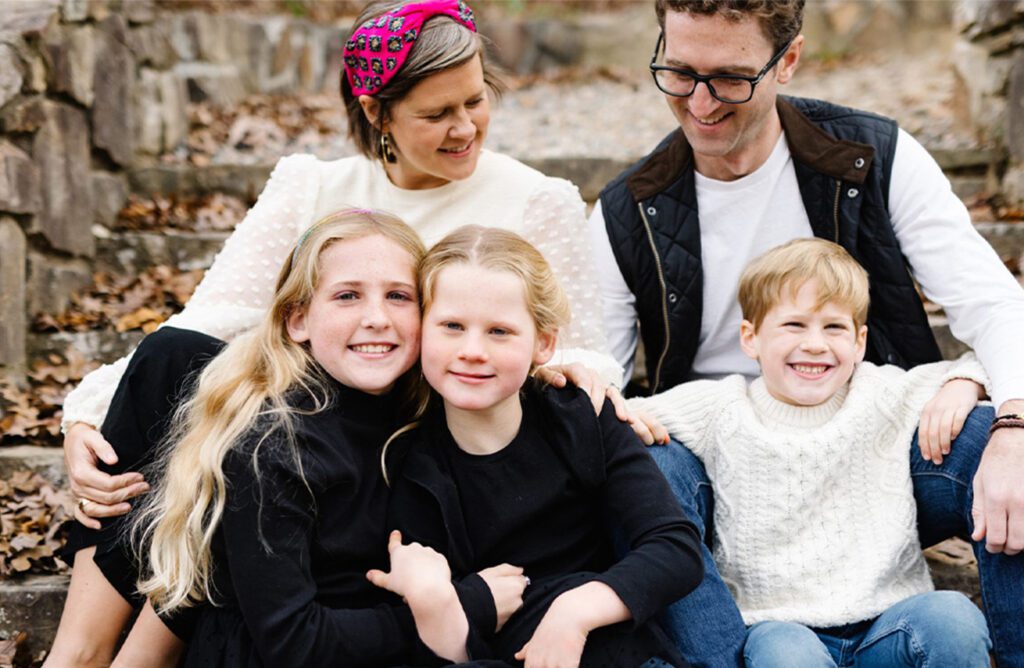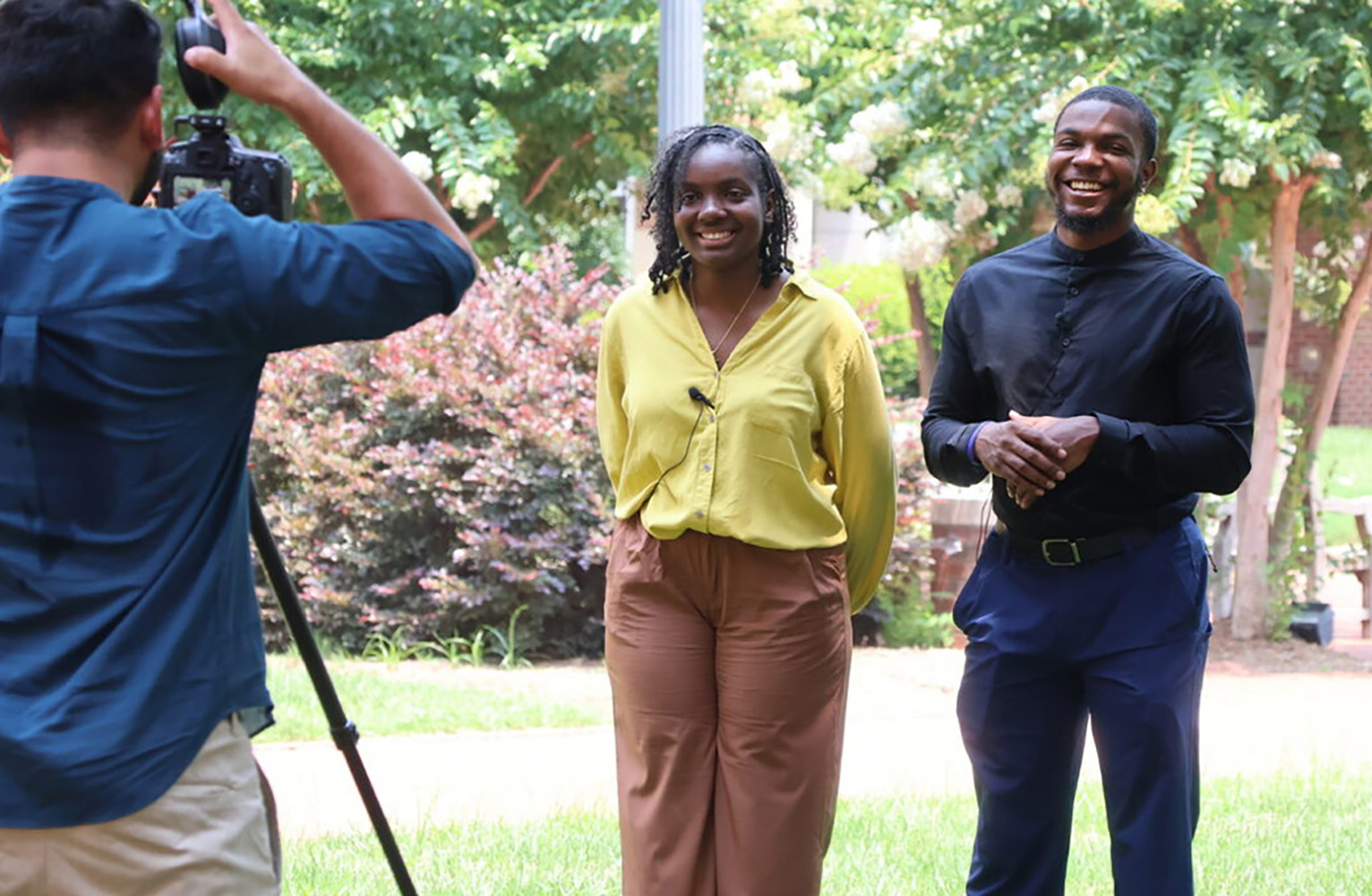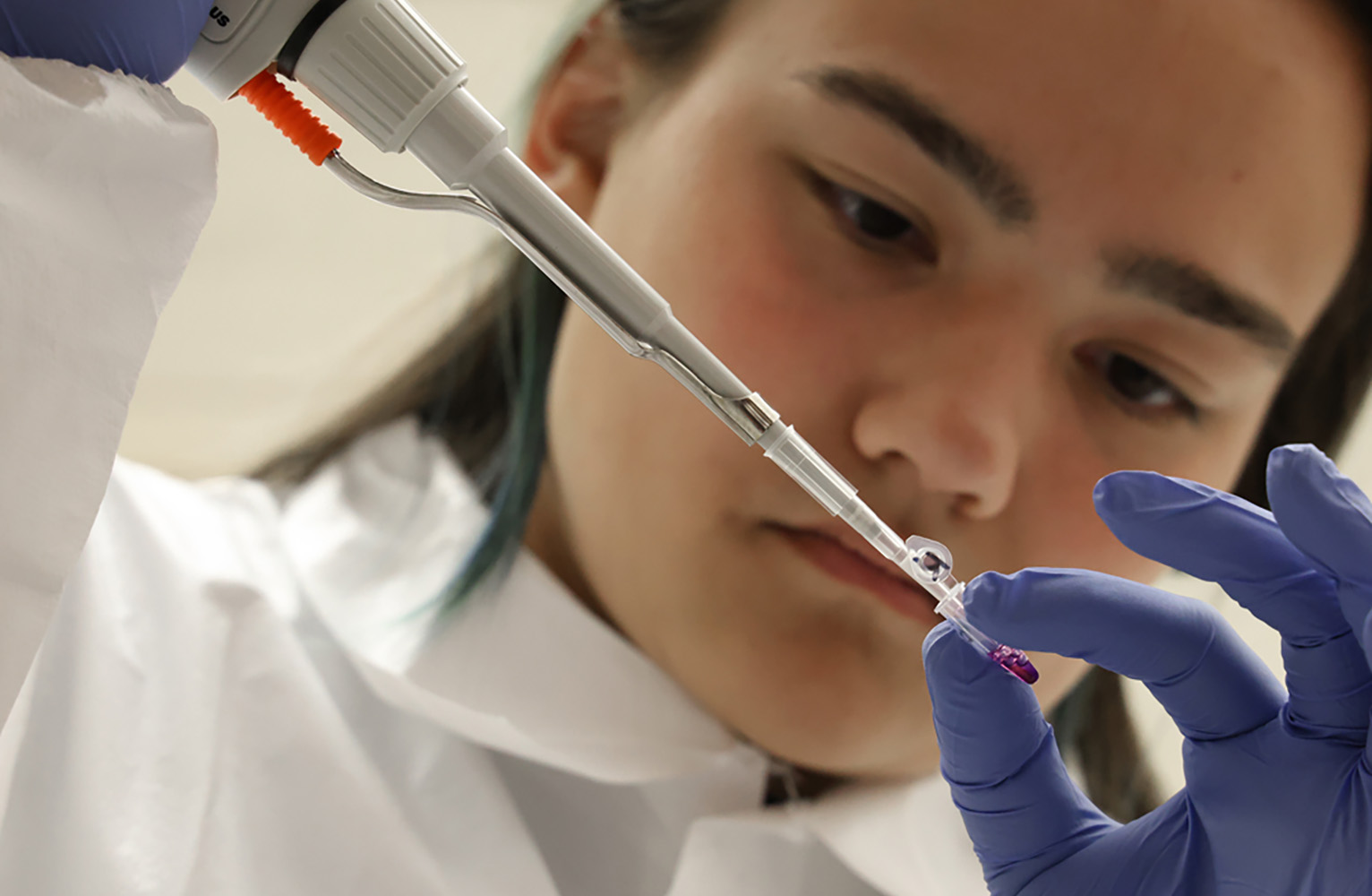 The frequent smiles and ready laughter of patients with Angelman syndrome mask the rare neurological disorder’s more serious symptoms. Severely developmentally disabled, most can’t talk and begin to walk at a later age with an awkward, jerky gait and often flap their hands.
The frequent smiles and ready laughter of patients with Angelman syndrome mask the rare neurological disorder’s more serious symptoms. Severely developmentally disabled, most can’t talk and begin to walk at a later age with an awkward, jerky gait and often flap their hands.
“There’s a lot of attention on Angelman syndrome right now. It’s poised to be one of the first neurodevelopmental disorders where we have a potentially transformative treatment,” said pediatrician Dr. Liz Jalazo, chief medical officer at the Angelman Syndrome Foundation and assistant professor of pediatric genetics and metabolism in the UNC School of Medicine.
That’s especially important to Jalazo because she is also the mother of 8-year-old Evelyn, diagnosed with Angelman syndrome just before her first birthday.
One of the first calls Jalazo made after the diagnosis was to Carolina, her alma mater. Specifically, she wanted to speak to leading Angelman researcher Ben Philpot, Kenan Distinguished Professor of cell biology and physiology in the School of Medicine and associate director of the UNC Neuroscience Center.
Today, Philpot’s lab is looking at two approaches to treating Angelman syndrome, one using traditional gene therapy and the other using techniques to reactivate a dormant gene. The gene therapy approach uses a virus to replace the defective gene with a healthy one.
The reactivation approach is more particular to Angelman syndrome. A baby is born carrying two copies of the UBE3A gene, one from each parent. In Angelman, the active copy from the mother mutates spontaneously. But what about the non-mutated copy from the father?
Inspired by the research done at Carolina, three drug companies are currently running clinical trials on reactivating the dormant paternal copy of the gene.
“There’s never been a more hopeful time to have a child diagnosed with Angelman syndrome,” said Jalazo.
Read more about Carolina’s history of research on Angelman syndrome…
Related Stories

 The frequent smiles and ready laughter of patients with Angelman syndrome mask the rare neurological disorder’s more serious symptoms. Severely developmentally disabled, most can’t talk and begin to walk at a later age with an awkward, jerky gait and often flap their hands.
The frequent smiles and ready laughter of patients with Angelman syndrome mask the rare neurological disorder’s more serious symptoms. Severely developmentally disabled, most can’t talk and begin to walk at a later age with an awkward, jerky gait and often flap their hands.

